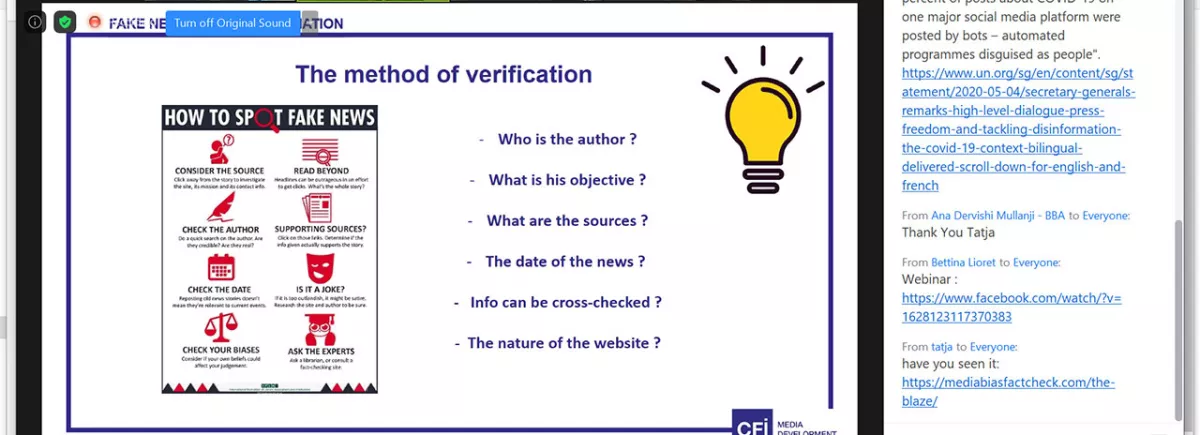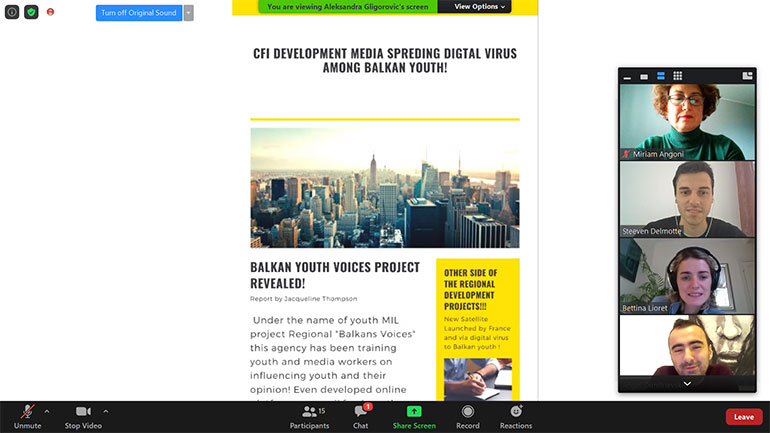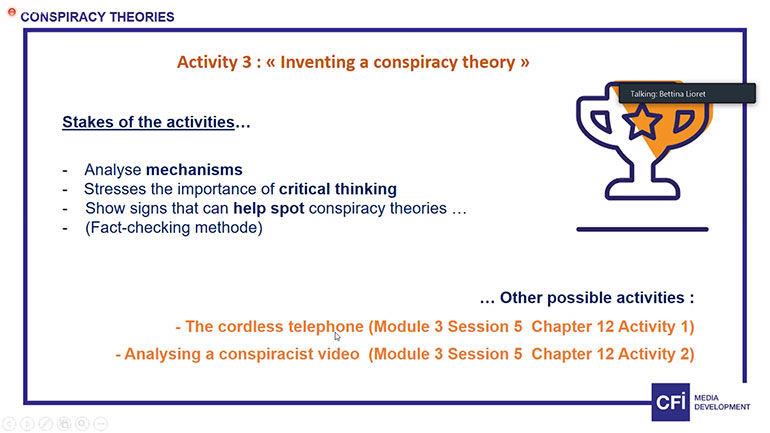
Tools to raise awareness of media and information among young people from the Balkans
Related project
Balkans VoicesFifteen professionals reaped the rewards of an online training course held on 12/13 November 2020, the purpose of which was to make use of the TALMIL platform’s educational resources in order to organise workshops that would help 15 to 19-year-olds to decipher information and reject misinformation.
This regional training was led by the media and information literacy experts behind the content on Talmil, and introduced this platform’s educational resources to the attending media and information literacy professionals, who come from six Balkan counties. The training was also an opportunity for the participants to meet up virtually to discuss their good habits and boost their skills in connection with online training, which is used very often given the current health crisis. One of the participants really enjoyed the e-learning aspect as it allowed them to “get to know experts from the entire region”.
This gave the trainers a reminder of the distinctive nature of online training and the various digital tools available to make the workshops more interactive. They discussed what they found challenging and shared effective working methods.

Verifying information, and conspiracy theories
The training touched on a number of topics. One example was the issue of fake news, which was tackled by means of a news verification activity taken from the Talmil platform. Everybody shared their experiences and tools and asked questions about the approach used to teach young people at local level. Other topics that were addressed included conspiracy theories, social media and the way young people use it, and young people’s ability to access news that has been fact-checked.
The second part of the final day focused on practical application of the ideas, concepts and activities that were introduced during the training. After the participants had gotten to grips with TALMIL’s info sheets that are designed to help trainers create public media (podcast, video, online magazine, etc.) and were separated into groups, they created a detailed one-day training plan.

This session was very popular and was “very useful for the trainers but also for the young people who will benefit from this knowledge in future workshops”, in the words of one of the experts. Everyone will go on to lead four to six sessions on deciphering information and combating misinformation for people between the ages of 15 and 19. The 72 workshops began in December 2020 and will continue to be held as either classroom-based or online workshops until June 2021.


